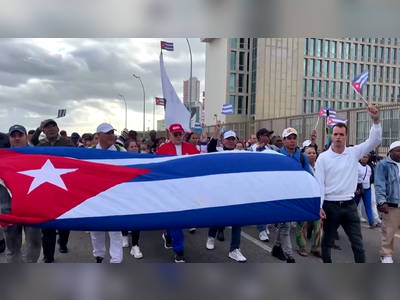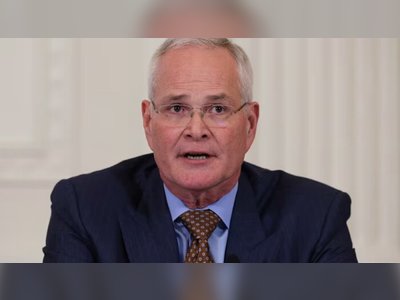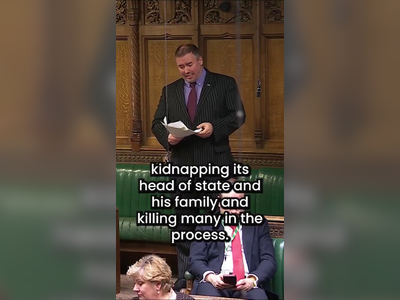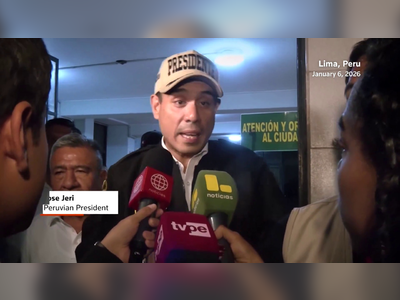Costa Rica's Central Bank Warns of Rising Inflation in 2025 Amid Global Uncertainty
Central Bank President Róger Madrigal highlights the need for cautious monetary policy as inflation forecasts surge, while international and domestic factors signal turmoil.
As the global landscape becomes increasingly unpredictable, the Banco Central de Costa Rica (BCCR) plans for possible inflation hikes in 2025.
The bank's president, Róger Madrigal, shared these projections as the Board of Directors decided to maintain the monetary policy rate (TPM) at 4% in its final meeting of 2024.
In a press briefing on December 19th, Madrigal underscored the unpredictable nature of inflation trends, which placed a potential interest rate adjustment under scrutiny.
'The world at large sees more uncertainty,' Madrigal remarked, emphasizing the critical need for prudence in the monetary policies of global central banks.
The latest inflation data presents a complex picture: while November saw a negative year-on-year inflation rate, the monthly change was a positive 0.47%.
Madrigal considered this a significant, albeit tentative, adjustment.
December's preliminary figures also suggest a positive fluctuation in price indices.
However, Madrigal cautioned against premature conclusions: 'This is today's situation.
We'll need the January figures to see if these fledgling trends solidify.
In such uncertain times, caution is paramount,' he stated.
Projections indicate a gradual inflationary increase, anticipated to fall within the bank's target range of 2% to 4% by Q3 2025.
External factors, including potential inflation in the United States—Costa Rica's primary trading partner—could further push prices upward.
Economic analyst Rolando Saborío from Universidad Estatal a Distancia (UNED) warned of the inflationary pressures stemming from anticipated U.S. trade and immigration policy shifts under the new administration.
November's inflation, scored at a -0.09% change in the Consumer Price Index (CPI), marks the 19th consecutive month below the BCCR's tolerance range.
Criticism has arisen, notably from Marco Otoya of the University of Costa Rica's Cinpe, who argues that the BCCR's reactive stance during inflation spikes contrasts with its current inertia as inflation ebbs.
Otoya suggested that the global factors influencing local prices are not showing threatening signs of substantial hikes in vital imports such as oil.
The BCCR's assessment of inflation involves evaluating risks that could influence inflation either upwards or downwards.
On the downside, weaker-than-expected economic growth among key trading partners and the potential continuation of restrictive monetary policies pose threats.
Conversely, geopolitical conflicts, restrictive trade measures, and adverse climatic conditions present risks of consumer price hikes.
The reference rate for credit and investment operations in local currency remains at 4% since October 18, continuing at least until January 23.
This 2024 monetary policy conclusion positions the TPM near a 'neutral' zone, aligned with a 3% inflation target.
Madrigal assured that inflation stability is the primary objective, with the monetary policy rate continually evaluated against evolving economic contexts.
Meanwhile, Alonso Alfaro, BCCR's Chief Economist, noted the policy stance could shift swiftly, given the volatility of economic conditions.
'Situations change rapidly, sometimes violently, and the Central Bank commits to responding appropriately to new information,' Alfaro declared, underscoring the TPM's role as a pivotal economic lever influencing savings, loans, and consumption behavior.
The bank's president, Róger Madrigal, shared these projections as the Board of Directors decided to maintain the monetary policy rate (TPM) at 4% in its final meeting of 2024.
In a press briefing on December 19th, Madrigal underscored the unpredictable nature of inflation trends, which placed a potential interest rate adjustment under scrutiny.
'The world at large sees more uncertainty,' Madrigal remarked, emphasizing the critical need for prudence in the monetary policies of global central banks.
The latest inflation data presents a complex picture: while November saw a negative year-on-year inflation rate, the monthly change was a positive 0.47%.
Madrigal considered this a significant, albeit tentative, adjustment.
December's preliminary figures also suggest a positive fluctuation in price indices.
However, Madrigal cautioned against premature conclusions: 'This is today's situation.
We'll need the January figures to see if these fledgling trends solidify.
In such uncertain times, caution is paramount,' he stated.
Projections indicate a gradual inflationary increase, anticipated to fall within the bank's target range of 2% to 4% by Q3 2025.
External factors, including potential inflation in the United States—Costa Rica's primary trading partner—could further push prices upward.
Economic analyst Rolando Saborío from Universidad Estatal a Distancia (UNED) warned of the inflationary pressures stemming from anticipated U.S. trade and immigration policy shifts under the new administration.
November's inflation, scored at a -0.09% change in the Consumer Price Index (CPI), marks the 19th consecutive month below the BCCR's tolerance range.
Criticism has arisen, notably from Marco Otoya of the University of Costa Rica's Cinpe, who argues that the BCCR's reactive stance during inflation spikes contrasts with its current inertia as inflation ebbs.
Otoya suggested that the global factors influencing local prices are not showing threatening signs of substantial hikes in vital imports such as oil.
The BCCR's assessment of inflation involves evaluating risks that could influence inflation either upwards or downwards.
On the downside, weaker-than-expected economic growth among key trading partners and the potential continuation of restrictive monetary policies pose threats.
Conversely, geopolitical conflicts, restrictive trade measures, and adverse climatic conditions present risks of consumer price hikes.
The reference rate for credit and investment operations in local currency remains at 4% since October 18, continuing at least until January 23.
This 2024 monetary policy conclusion positions the TPM near a 'neutral' zone, aligned with a 3% inflation target.
Madrigal assured that inflation stability is the primary objective, with the monetary policy rate continually evaluated against evolving economic contexts.
Meanwhile, Alonso Alfaro, BCCR's Chief Economist, noted the policy stance could shift swiftly, given the volatility of economic conditions.
'Situations change rapidly, sometimes violently, and the Central Bank commits to responding appropriately to new information,' Alfaro declared, underscoring the TPM's role as a pivotal economic lever influencing savings, loans, and consumption behavior.











